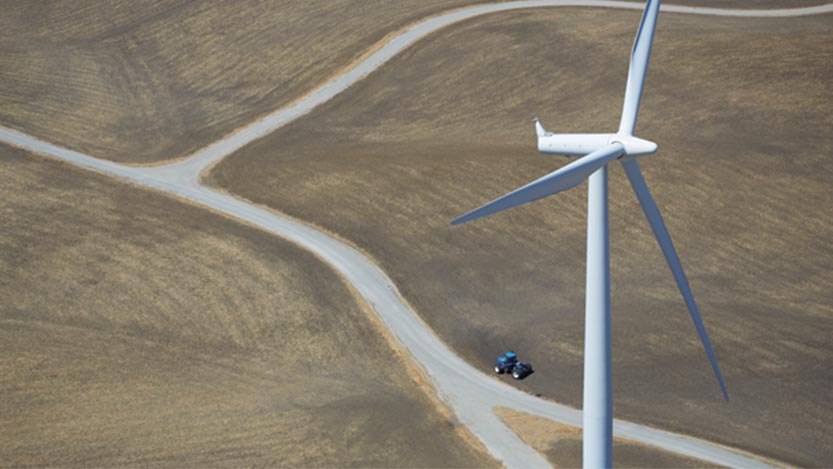Blog post
Consumers are ready to switch brands for sustainable alternatives

A new global study from Microsoft Advertising and dentsu international, “The Rise of Sustainable Media,” examines consumer awareness and behaviors linked to sustainable consumption and media usage.
Our goal was to understand consumer perceptions of sustainable media by surveying more than 24,000 people from 19 countries. We compiled results to characterize how climate change concerns impacted consumer attitudes and behaviors, and to understand better how sustainable media advertising can help advance climate criteria whilst also growing brands. The report contains key findings of the global research and highlights the implications and actions for the boardroom when it comes to considering business strategies and marketing campaigns.
Download the full report for a comprehensive look at the data and actionable insights.
How sustainability relates to business and media
Sustainability is more than a buzzword for brands. This is an opportunity for marketers to use their storytelling prowess to ensure consumers know exactly what they, as brands, are doing to fight climate change and reduce their environmental impacts. There is also an opportunity for the CEO and boardroom to make and empower positive choices about the planet and environment. Globally, 86% of people in the study said they are concerned by climate change.1 Of respondents, 91% agreed that companies can positively impact the environment through business operations and manufacturing processes.1
Consumers expect businesses to take responsibility for the environmental impacts posed by their operations. The survey’s findings imply a relationship between how people perceive a brand, its products, and how it is advertised. In fact, there is a direct link to sales and brand perception associated with “green” issues and environmental impact.1
How environmental behavior impacts purchase intent
The research found a strong connection between a brand’s environmental behavior and its customers’ purchase intent. For businesses, this means being “green” is linked to profitability, and sustainability communications should be embedded across the customer journey for the good of the company and the planet.
This is a significant opportunity for those brands prepared to embrace sustainable media advertising—and a threat to businesses that do not.
- 88% of global respondents say they will make sustainable purchases when able.1
- 81% of North American respondents say they would stop using or buying products if they found out those products hurt the environment.1
The carbon footprint of media advertising
The need to demonstrate sustainability efforts extends beyond products and manufacturing to advertising. Environmental claims are subject to review in the US and other markets to ensure that they are not unfair or deceptive. In the US, the Federal Trade Commission plays this role through its Green Guides, which instruct marketers to ensure that any environmental claims are substantiated, accurate, and truthful.
While advertising and media are crucial in delivering messages about climate change, they also contribute towards carbon emissions through operations, logistics, sourcing, production, and labor impacts. Across the 19 markets surveyed, 61% of respondents viewed experiencing an ad as harmful for the planet.1 This number got higher for the younger generation, as 81% of Millennial respondents perceived experiencing ads as detrimental to the environment.1
Governments, businesses, and marketers have limited time to reframe the conversation around this topic, and the speed at which the perception shift progresses is influenced by a generational divide. Just 45% of Boomers in the global survey believed consuming ads to be negative for the environment, compared with 71% of Gen Z and 73% of Millennials who share this sentiment.1
The “green reframing”: Grounded in positive brand actions and media choices
The climate crisis has come to dominate public consciousness, and tackling this crisis requires holistic transformation: The responsibility for driving this change is not with businesses alone; the advertising industry also needs to make meaningful progress. A key step is to map emissions across the entire media ecosystem and develop a holistic scorecard for brands to make informed decisions about their media plans, and the impact those plans have on their brands and business.
Stakes are high. dentsu international and Microsoft Advertising research identified a significant opportunity and call to action: Brands should embrace sustainable media advertising. Across the markets surveyed, 77% of people say that in five years, they only want to spend money on brands that practice sustainable advertising.1
How brands can adapt
“The Rise of Sustainable Media” is a global study that examines consumer attitudes and behaviors linked to sustainable consumption and advertising. Businesses can learn strategies for improving transparency, technology, engagement, and leadership by downloading the full report at SustainableMedia.dentsu.com.
[1] The Rise of Sustainable Media. dentsu international and Microsoft Advertising, December 2021. https://SustainableMedia.dentsu.com/home1/home. Commissioned independent research with Opinium. Survey of 24,068 adults across 19 countries, August 2021.
Your input makes us better
Take our quick 3-minute survey and help us transform your website experience.




